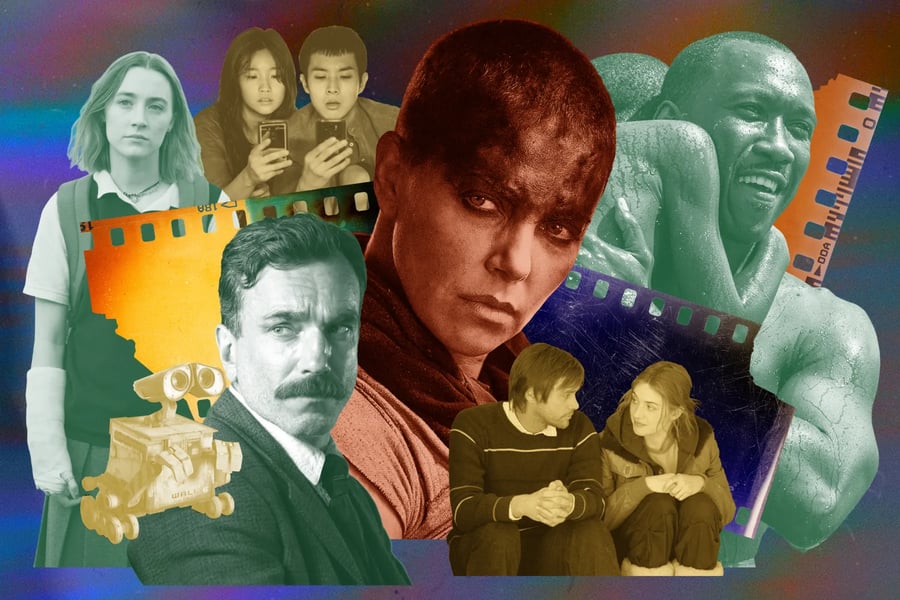100 Best Movies of the 21st Century
From ‘Moonlight’ to ‘Parasite,’ super-long documentaries to superhero epics — our picks for the greatest movies of the past 25 years

PHOTO ILLUSTRATION BY MATTHEW COOLEY.
We’re now a quarter of century into the 21st century, and to say that the movies are in a different place now than they were 25 years ago would be putting it mildly. Technological innovations, industry fluctuations, the coining of the phrase “cinematic universe” — as both an art form and mass entertainment, the medium has changed in both minute and monumental ways. Even the way we view movies has evolved and devolved several times over. Film has been declared dead a half dozen times. It’s then been dubbed “never better!” a half dozen times more. Stars have come and gone, intellectual properties have risen and fallen, and the competition for attention spans and eyeballs has never been tougher. Take a time machine back to the year 2000, and watch as people blankly stare back at you before asking, “So wait, what’s a TikTok?!”
What has not gone away, however, is the power that a great film can have over viewers still willing to submit to the possibility of transformation when the lights go down (in a theater or your living room, though, y’know — aim for the former). The following 100 movies represent what a handful of Rolling Stone contributors who still believe in the movies, still obsess over them, still find thrills and chills and salvation in them, have dubbed the best of this relatively still-young century. It’s a living document, to be sure; we’ll undoubtedly go back and add to this list as the years go by. But every single entry here has reminded us of the way that the movies can reflect our humanity back at us, spark our imaginations, inspire us to laugh or cry or gasp or take action, and why we fell in love with the moving pictures in the first place. From comedies to tragedies, biopics to superhero epics, stop-motion foxes to milkshake-drinking tycoons — our picks for the high points of this moviegoing century to date.




















































































